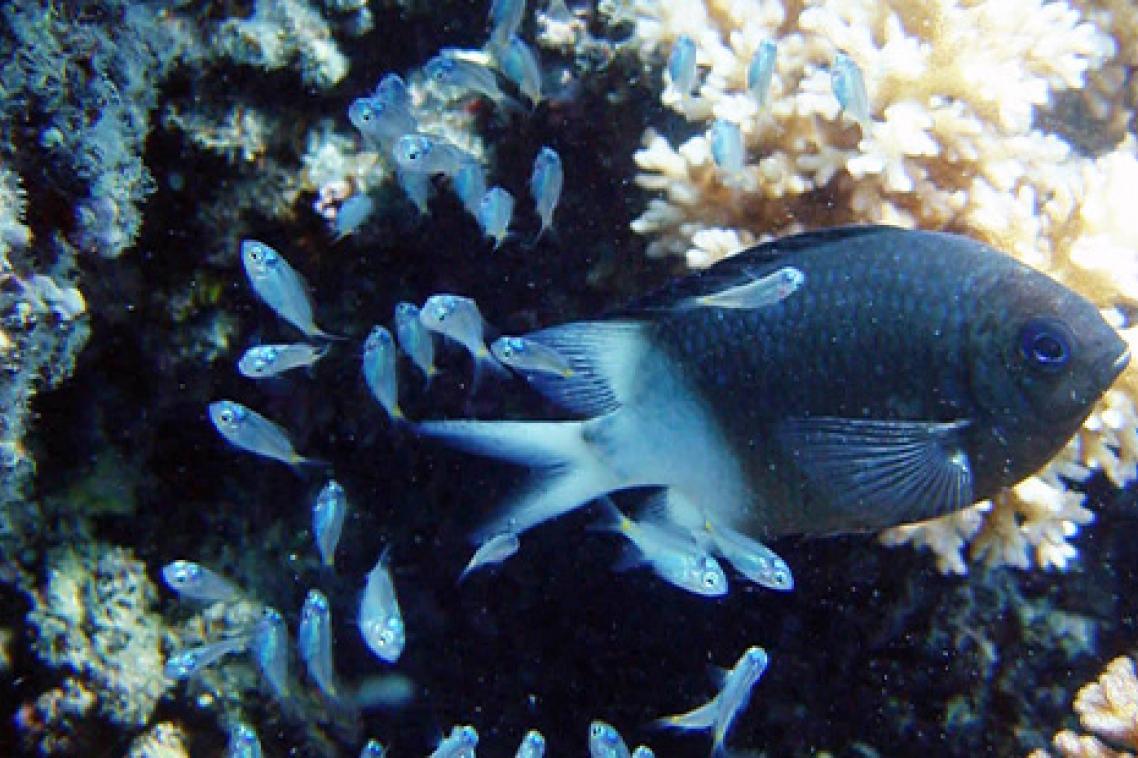How helicopter parenting protects baby reef fish

Researchers have discovered a rare example of ‘great fish parenting’ with a common coral reef species found to actively protect their young by eating parasites.
The University of Queensland’s Dr Alexandra Grutter said the team identified that a species of damselfish cared for their offspring and improved their chances of survival by eating the parasitic gnathiid isopods.
“In the marine environment the care of fish eggs is common, but caring for the tiny larval fishes after they hatch is rare,” Dr Grutter said.
“In most cases the larvae leave the reef for the open ocean.
“But uniquely, spiny chromis damselfish offspring found in the western Pacific Ocean never leave the reef and are cared for by both parents.”
The researchers discovered the parent fish actively eat gnathiids, which are common reef parasites that feed briefly on the blood of their host and leave when full, in a similar way to mosquitoes.
“From our previous research we know gnathiids are especially harmful to juvenile fishes by reducing their swimming, competitiveness, escape response, aerobic performance and overall survival,” Dr Grutter said.
“So, this is a fascinating example of great fish parenting.”
Mum and Dad damselfish to the rescue
The study was conducted by adding cultured parasites to two aquariums of juvenile fish – one tank with a parent fish and the second without a parent – and recording what happened over 3 days.
The survival rate of the juvenile fish in the tank with a parent was 3 times higher than those without a parent fish.
The researchers said further tests in the laboratory and in the ocean confirmed the parent fish were defensively eating gnathiids.
“We are now interested to learn how other young fishes without such parental care avoid suffering from gnathiid parasitic infection,” Dr Grutter said.
Further studies on fish parenting
While parasite-removal services are often provided by ‘cleaner fish’, they tend to prefer larger fish.
“Given how tiny the damselfish offspring are, these fish parents have really come to the rescue,” Dr Grutter said.
“We will be keen to see if there are other examples of fish showing parental care involving the consumption of parasites.”
The research is published in Proceedings B.
Media assets
Photos and videos available via Dropbox
Media contact
Faculty of Science Media
science.media@uq.edu.au
+61 438 162 687
Related articles

Obstetric forceps

Dr Petz’ stomach stapler
Media contact
UQ Communications
communications@uq.edu.au
+61 429 056 139
